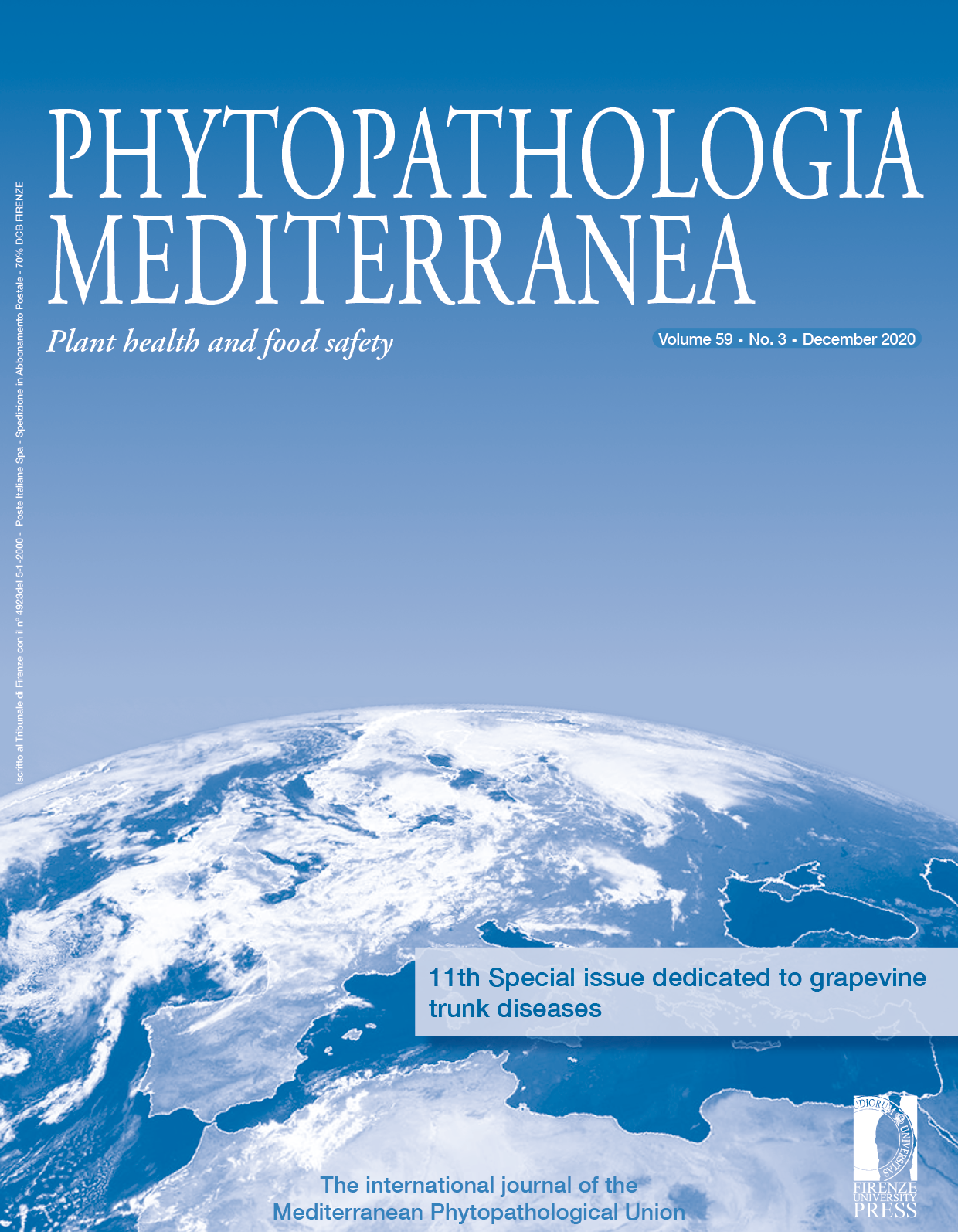Published 2020-12-12
Keywords
- Esca complex,
- Eutypa dieback,
- Botryosphaeria dieback,
- Fungal pathogens
How to Cite
Abstract
Grapevine trunk diseases (GTDs) are a complex caused by many taxonomically unrelated fungi. Diseases in this complex are responsible for different vascular and foliar symptoms, which cause overall decline and eventual death of grapevines. Though GTDs have been known since the late 19th Century their significance and impacts on vine health have been fully recognized much more recently. Today, GTDs are considered major biotic factors reducing grapevine yields and vineyard lifespans, which cause substantial economic losses to grape and wine industries worldwide.
Emergence of these diseases in the early 1990s, and the urgent need for effective disease management strategies by growers and industry, focused scientific attention. As a result, a meeting in California took place in July of 1998, organized by the viticulturist Lucie Morton, who saw the potential threats posed by fungus infections of grapevine trunks. On that occasion, participants and founding members developed the structure and objectives of the International Council on Grapevine Trunk Diseases (ICGTD). Since then, the primary goal of the ICGTD has been to promote relevant research, and encourage collaboration and knowledge exchange among scientists and industry partners, on issues pertaining to GTDs.
Every two years, since 1999, the ICGTD has organized the International Workshop on Grapevine Trunk Diseases (IWGTD), where scientists and industry members from around the world present, share and discuss the latest research findings on different areas concerning this increasingly important disease complex.
This 11th Special Issue of Phytopathologia Mediterranea on GTDs collects together presentations given at the 11th IWGTD, which was held on July 7-12, 2019, in Penticton, British Columbia, Canada. This conference marked the 20th Anniversary of the Workshop. The Workshop was attended by 151 participants from 21 countries. A total of 64 oral and 48 poster papers were presented in four sessions, covering Pathogen Detection and Identification, Epidemiology, Host-Pathogen Interactions, and Disease Management. In addition, a special session on GTD control provided the local grapevine industry with a practical summary and overview of the current GTD management options and the economic impacts they cause.
A student competition, with awards for best oral and poster presentations, was held for the first time at IWGTDs, with 20 graduate students participating. For Best Poster presentations, first place was awarded to Pierluigi Reveglia (Charles Sturt University, Wagga, New South Wales, Australia), second to Edelweiss Rangel Montoya (Centro de Investigación Científica y de Educación Superior de Ensenada, Baja California, Mexico), and third to Daina Grinbergs (Instituto Nacional de Investigaciones Agropecuarias, Chillán, Chile). For Best Oral Presentation, first place was awarded to Jinxz Pollard-Flamand (Agriculture and Agri-Food Canada Summerland RDC, British Columbia, Canada), second to Clément Labois (Université de Haute-Alsace, Colmar, France), and third to María del Pilar Martínez-Diz (Estación de Viticultura e Enoloxía de Galicia, Ourense, Spain).
The ICGTD Council Members have determined that these Workshops will now be convened at 3 year intervals. The 12th IWGTD will be held in the Czech Republic in 2022.
The editorial team of this Journal is indebted to all authors of papers presented in this Special Issue, for their support and contributions.






